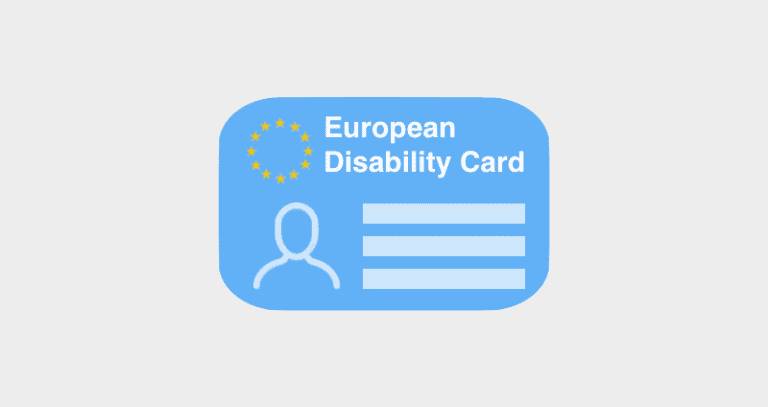On 8th February 2024, following the second trilogue negotiations, the European Parliament and European Council reached a provisional agreement on the Directive establishing an European Disability Card. The agreement has been reached in record time as this process normally takes significantly longer. However, the Members of the European Parliament (MEPs) who are allies to the Disability Movement have pushed this file forward so it can be agreed up on before the end of this legislative term.
The official agreed upon report has not yet been published, therefore we don’t know yet exactly which of our suggested amendments have been included or not. However, as of now, we can provide some initial details about the deal that was made. The following provisions are included:
- Extension of the scope of the Card to include EU Mobility Programmes such as Erasmus+. This means that if a deaf student wishes to study abroad, their EU Disability Card will ensure they have access to the various supports and provisions under the Card (these will depend on the host country) for the duration of their studies there;
- Inclusion of transport services (with some exceptions);
- There will be an EU level website with accessible information about the Card. EUD advocated to ensure the information is also provided in national sign languages;
- The Card will be issued and renewed free of charge;
- The EU Member States can decide whether to continue the use of the Card for longer periods than the short term stay of 3 months specified in the text.
All of our suggested amendments were included in the EU Parliament’s adopted report, however this doesn’t mean that they will also be kept in the new text agreed upon by the EU Parliament and Council as it has been re-negotiated. However, this is what we already know was not included:
- Temporary access to social security support when persons with disabilities move to a country for longer periods that the specified “short term stay” e.g. for work. Therefore, if a deaf person has to move abroad for work for a certain period of time, they might not have access to support while undergoing lengthy the disability reassessment processes.
- However, the EU Parliament did manage to ensure that the EU Commission must assess any gaps in social security supports, that would impede persons with disabilities’ right to freedom of movement, within the first year of the Directive’s application.
- EU funding to support the actual implementation of the Cards by the Member States.
- Disappointingly, EU Member States will have 42 months to start providing the Cards to persons with disabilities, including 30 months to transpose the legislation (that is to create national laws to obey it). This means that the Card will only fully become a reality in 4 years time.
In the meantime, whilst we wait to receive the agreed upon report, on 16th February 2024, EU Member States will meet to discuss and agree upon the report so that it can be finalised within this legislative term – which would be a significant achievement. Stay tuned for updates!













